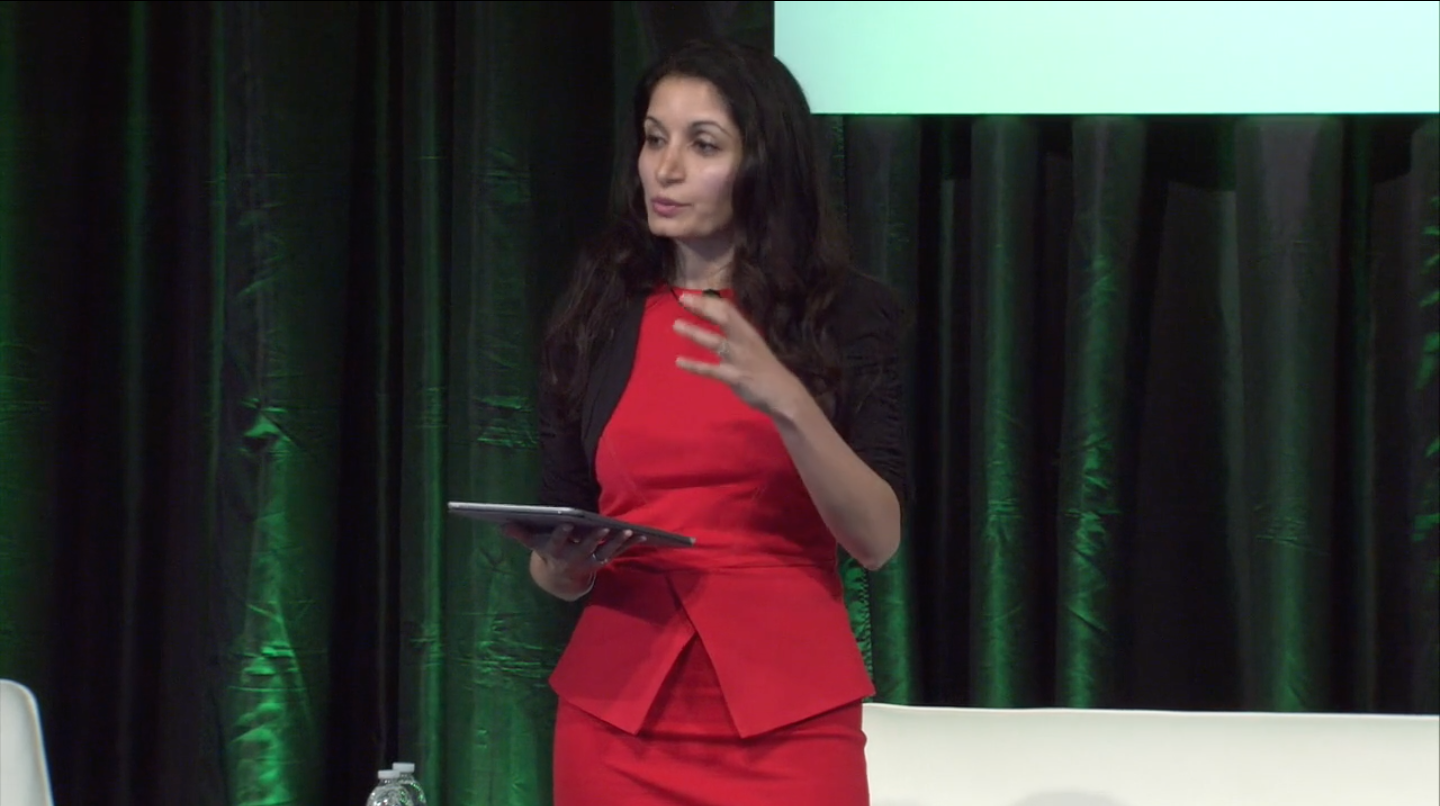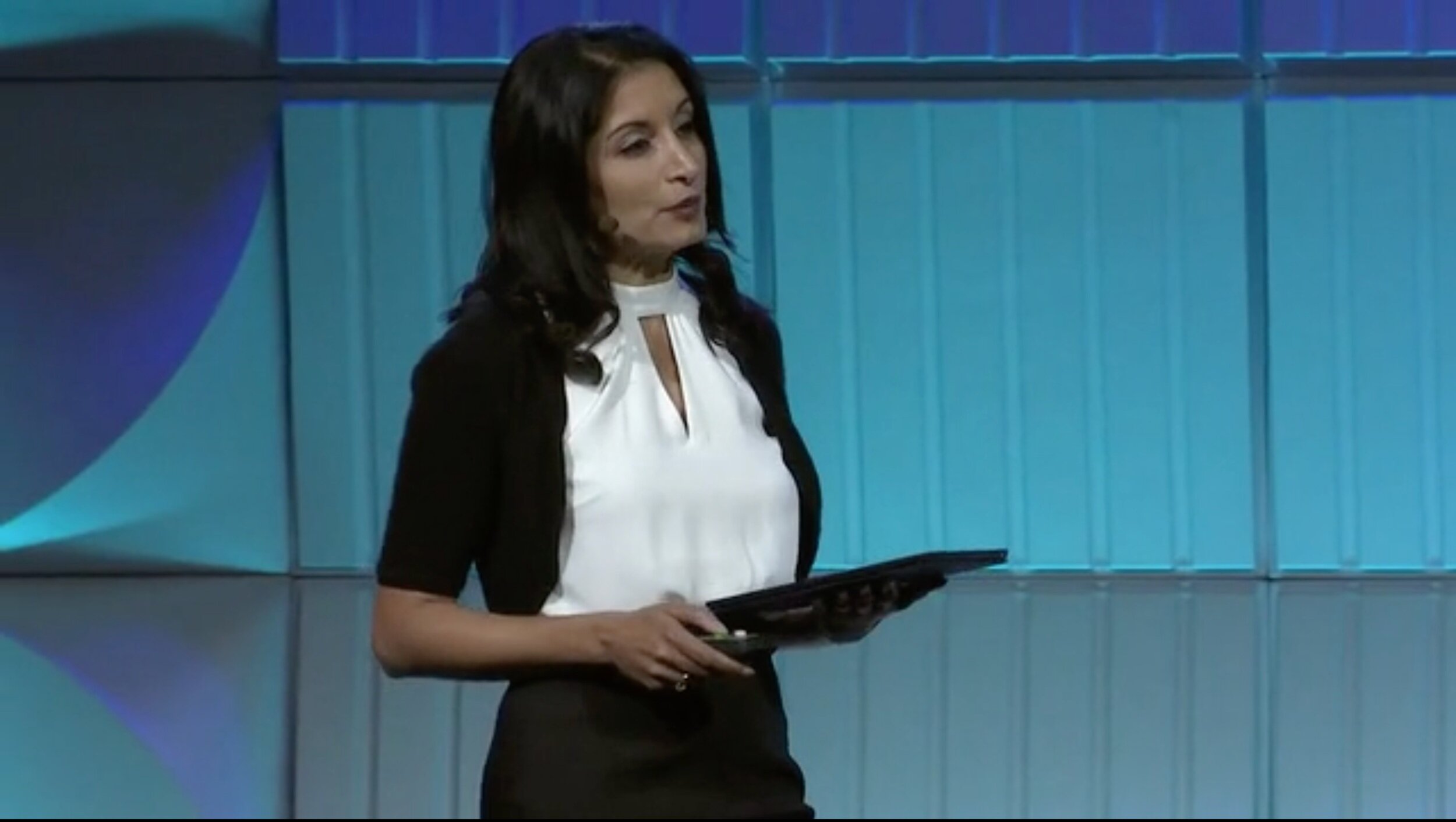Past Speaking Engagements

Indu delivers a remote keynote to ACHE’s 2020 Congress on Healthcare Leadership


How health technologies can help improve health outcomes at a societal level and the five transformations taking place in healthcare.


From breaking barriers to raising the bar… the opening talk at Health 2.0 Fall Conference


Speaking at LA Cares about the AI in the digital healthcare space.


Discussed data, technologies, and innovation for universal health coverage in a keynote at UNDP’s recent HIV and Health Community of Practice Meeting in Istanbul.


Speaking at Transform 2018 hosted by Mayo Clinic Center for Innovation


Panel discusses how technology is innovating, disrupting, and improving health care. Tech health care disrupters discuss operating and changing the delivery model. How to not only survive, but thrive, in the current dysfunctional state of health care from the perspective of patient health, access, treatment, or interactions to the system.
Understand how major health care stakeholders are becoming critical partners in the health care tech ecosystem and the value they perceive from tech innovations and investments.


Keynote at Society for Healthcare Strategy & Market Development at the American Hospital Association Connections Conference


Data and tech are supporting patients ‘at home’ which is really everywhere and how we interface with technology will be part of healthcare. And with new modalities, there will be some disruption in business models.


At Health 2.0’s Winter Tech: a panel on digital therapeutics making evidence-based waves in health care.


Indu speaks with Sean Cavanaugh of Aledade and Bill Gil at the Thirteenth National Value-Based Payment & Pay for Performance Summit on the role of data and tech in value based care.


The unacceptable in healthcare: homelessness, maternal mortality, and human trafficking.


Speaking on the SLUSH 2017 Central Stage, Indu kicks off the healthcare segment by welcoming the audience to a decentralized future of health.


A panel at Health 2.0 2017 on the disparities in health and healthcare that we should not tolerate because we can do better.


Indu and co-founder Matthew Holt welcome attendees to the 2017 Fall Conference of Health 2.0 by discussing the five key drivers of a future of decentralized healthcare


Reflecting on the past ten years, Indu Subaiya, the Co-Chairman and CEO of Health 2.0, will highlight the top accomplishments in health care and how technology has played a role, as well as the challenges that still need to be addressed.


Indu Subaiya delivers her keynote “Is Digital Health Becoming its Own Industry?” at the 9th Annual Health 2.0 Conference.


Indu discusses the next phase of health innovation and why we have to keep looking at fringe technology to transform healthcare. for StartUp Health


In 2015 Indu spoke about how to harness the power of digital technology


At the Health 2.0 conference


Indu addressed how digital health technologies are reinventing the scientific method at the Health 2.0 2014 Fall Conference


Hollywood, Healthcare and the Primary Providers – Building a Media, Advertising and Technology Wellness Alliance


A panel at the Health 2.0 2014 conference; the sophistication of methodologies but also the practical implication of the findings when working with expansive data.


UCLA Chipts in 2014 as a keynote speaker on Trends in Health Technology: The Data and Digital Convergence


Indu Subaiya discusses the 7 deadly sins at Health 2.0: 1) Too much testing, 2) Gooey hospital charges, 3) Bossy intermediaries, 4) No one understands PBMs, 5) EMRs don’t share, 6) It’s (not quite) my data, 7) Don’t go gently into good night.


Indu, Co-Founder of the Health 2.0 Conference, speaks about Web 2.0 and Health 2.0 at Transform 2009, a symposium sponsored by the Mayo Clinic Center for Innovation


In an event generously sponsored by the California HealthCare Foundation, deBronkart joined fellow panelists Thomas Lee, founder and CEO of One Medical Group, MedSimple founder Francis Kong, and moderator Indu Subaiya, co-founder of Health 2.0, to explore why online healthcare is crucial to better care and better communication.
